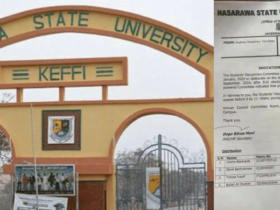
The Nigerian Supreme Council for Islamic Affairs (NSCIA) said it has launched a Muslim Care Initiative to tackle the country’s current economic crisis, which is making daily survival a struggle for its citizens.
The statement, issued by the Sultan of Sokoto, Alhaji Muhammad Sa’ad Abubakar, and the Secretary-General, Professor Is-haq Oloyede, highlighted the detrimental effects of the petrol subsidy removal on the Nigerian population.
The Council pointed out that the economic hardships have reached a point where basic necessities have become a luxury for most Muslims. It further emphasized that the increasing poverty rate has turned survival into a daily struggle for many families.
The NSCIA expressed its awareness of the overwhelming challenges faced by those recovering from the aftermath of terrorism and insecurity, who are now also grappling with these economic difficulties.
The Council noted a significant increase in poverty within the Muslim community.
READ ALSO: Plateau Massacre: Volunteers Provide Aid to Survivors
In response to these hardships, the NSCIA announced the conception of an emergency relief initiative, the Muslim Care Initiative, aimed at easing the burden on vulnerable Muslims.
This initiative is independent of the efforts made by the federal and state governments to provide relief to Nigerians.
The Council also expressed concern over the discrimination against Muslims by some state governments, who exclude them from their relief efforts, with Plateau State being a prime example.
The Muslim Care Initiative plans to gather resources nationwide to assist the socially marginalized members of the Muslim community.
The NSCIA outlined the specific goals of the initiative, which include providing psychological support to Muslims affected by natural and manmade disasters, advocating for state responses to the current economic challenges, and offering religious and educational guidance to the poor and socially excluded to help them better cope with life.
The initiative also aims to bridge the gap between the wealthy and the poor, ensuring that the former fulfill their obligations to the latter in accordance with Islamic teachings.
It also plans to collaborate with other stakeholders, both governmental and non-governmental, to further the cause of the initiative.
The NSCIA explained that the execution strategy of the initiative is based on a five-pronged approach: raising awareness, establishing leadership structures, mobilizing resources, encouraging active volunteering, and executing projects.








Leave a Reply